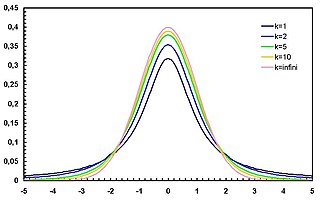Thursday, August 20, 2009
Ionian Enchantment - Skeptic's Circle #117
Posted by Simon Halliday | Thursday, August 20, 2009 | Category:
Scepticism
|
Mike, at Ionian Enchantment, hosted the 117th Skeptic's Circle: The Chiropractic Edition. Though I have not yet managed to read or listen to everything that he linked to, of those I've read or listened to I can recommend the following posts on chiropractic: Ben Goldacre's 'We are more possible than you can powerfully imagine'; Harriet Hall in Chiropractic and Deafness: Back to 1895' assesses whether chiropractic can do anything for deafness - it can't; Sam Homola, a retired chiropractor, discusses 'The Problem with NUCCA'; Simon at Adventures in Nonsense asks 'Will trading standards now take on the General Chiropractic Council?' These articles are all themed on the problems of chiropractic and its claims for 'cures'. Chiropractic does not have the right to claim these cures, it lacks the evidence. Anyway, take a look at Skeptic's Circle #117 and please support Simon Singh (read this).
Post Script:
In reading these posts (and others), I've seen that some people who argue in favour of chiropractic often seem to claim that sceptics arguing against chiropractic are 'happy with the status quo'. That's just silly. Sceptics who attack chiropractic argue that there is insufficient evidence to warrant the claims that chiropractors make about chiropractic. This does not imply that sceptics are employed by evil corporations out to get chiropractors, or that sceptics think that deaths during surgery, in medical randomized control trials, or iatrogenesis in general are 'good', but rather that anything, including chiropractic, claiming to 'treat', 'assist', 'help', 'cure', 'aid', 'remove', 'alleviate', or '[insert 'cure' type claim here]' the symptoms of, or the causes of, a disease should have evidence for its claims. These sceptics are not claiming that the cures we have are 'the best treatments ever', but rather that they are the ones we have evidence for, and, further, that as more effective, lower cost, generally better treatments with evidence for their efficacy emerge we will adopt those treatments. Chiropractic does not have the evidence to claim that it is more effective, lest costly to administer, or generally 'better'.
Another issue with statistics demands attention: if we use a test for a treatment effect, and we use a 10% level of statistical significance, about 10 times out of 100 we will get 'evidence' suggesting that a treatment works, which is why replication and reproducibility are so important in science generally and in randomized control trials specifically. Without replication we cannot know whether our sample wrongly presents false positives. Alternatively, practitioners or researchers of chiropractic could, perhaps, misunderstand the application of a false discovery rate. I'll leave my post script at that.

Post Script:

In reading these posts (and others), I've seen that some people who argue in favour of chiropractic often seem to claim that sceptics arguing against chiropractic are 'happy with the status quo'. That's just silly. Sceptics who attack chiropractic argue that there is insufficient evidence to warrant the claims that chiropractors make about chiropractic. This does not imply that sceptics are employed by evil corporations out to get chiropractors, or that sceptics think that deaths during surgery, in medical randomized control trials, or iatrogenesis in general are 'good', but rather that anything, including chiropractic, claiming to 'treat', 'assist', 'help', 'cure', 'aid', 'remove', 'alleviate', or '[insert 'cure' type claim here]' the symptoms of, or the causes of, a disease should have evidence for its claims. These sceptics are not claiming that the cures we have are 'the best treatments ever', but rather that they are the ones we have evidence for, and, further, that as more effective, lower cost, generally better treatments with evidence for their efficacy emerge we will adopt those treatments. Chiropractic does not have the evidence to claim that it is more effective, lest costly to administer, or generally 'better'.
Another issue with statistics demands attention: if we use a test for a treatment effect, and we use a 10% level of statistical significance, about 10 times out of 100 we will get 'evidence' suggesting that a treatment works, which is why replication and reproducibility are so important in science generally and in randomized control trials specifically. Without replication we cannot know whether our sample wrongly presents false positives. Alternatively, practitioners or researchers of chiropractic could, perhaps, misunderstand the application of a false discovery rate. I'll leave my post script at that.

Subscribe to:
Post Comments (Atom)




Currently have 0 comments:
Post a Comment